try {
String apikey = "-------";
String url = "https://freecurrencyapi.net/api/v2/latest?apikey=" + apikey + "&base_currency=USD";
URL urlForGetRequest = new URL(url);
String readLine = null;
HttpURLConnection conection = (HttpURLConnection) urlForGetRequest.openConnection();
conection.setRequestMethod("GET");
int responseCode = conection.getResponseCode();
if (responseCode == HttpURLConnection.HTTP_OK) {
BufferedReader in = new BufferedReader(new InputStreamReader(conection.getInputStream()));
StringBuffer response = new StringBuffer();
while ((readLine = in.readLine()) != null) {
response.append(readLine);
}
in.close();
System.out.println(response.toString());
} else {
throw new Exception("Error in API Call");
}
} catch (Exception ex) {
ex.printStackTrace();
}
How I can save values from api to Hashmap List? Where key will be first worth (e.g "JPY") and value will be worth of "JPY" (E.G 115). I wanted to use Jackson lib, but I didn't find any information for how to do it. enter image description here
